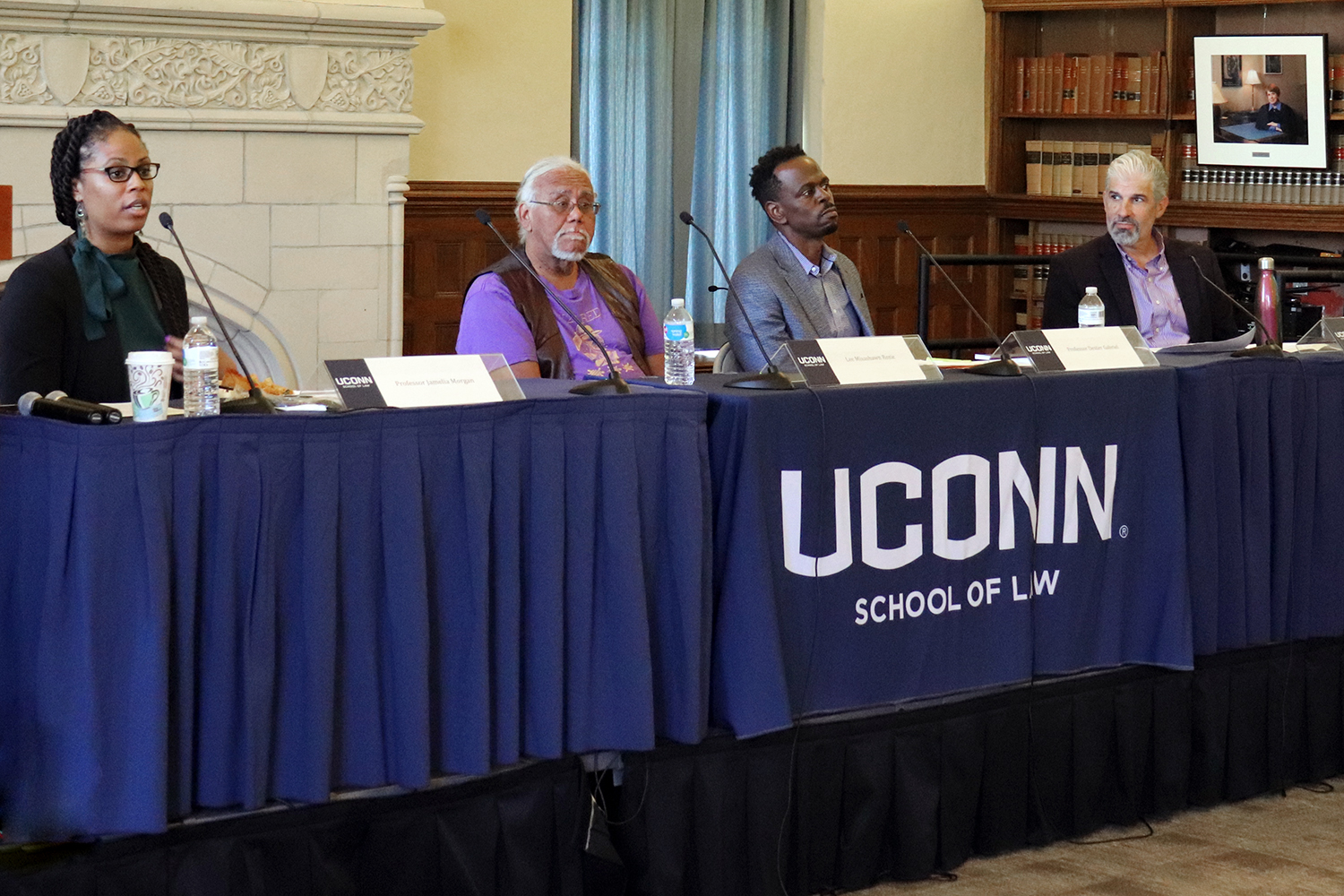On the day commemorating the arrival of Christopher Columbus in the Americas, students gathered for a program on his complicated legacy.
Several of the law school’s cultural affinity groups organized and sponsored Indigenous People’s Day: Community Celebration on Oct. 14, 2019. They came together, to share food and attend a panel discussion featuring Lee Mixashawn Rozie, a multidisciplinary and internationally acclaimed jazz artist; Professor Dexter Gabriel of UConn’s Department of History; and Professor Matthew Warshauer of Central Connecticut State University. They addressed the intense feelings surrounding the celebration of a controversial holiday.
The event started with a buffet of food supplied by the sponsoring groups: the Native American Law Students Association, Latino Law Student Association, Black Law Students Association and Italian American Law Students Association. Students milled from table to table, laughing and talking. Once the panel commenced, everyone took their seats and listened attentively to Rozie, Gabriel and Warshauer discuss the issues surrounding Columbus and his complex history.
The stage was set by Rozie, who opened up the panel discussion with a tribal ceremony. Performing one song with a flute and then singing another while playing a drum, Rozie set the tone in the Reading Room in William F. Starr Hall for the discussion to follow as one of tolerance, understanding and respect.
The panel, moderated by UConn Law Professor Jamelia Morgan, delved into the many parts of Columbus’s history, from the atrocities of slavery and genocide to the relatively recent adoption of him as an Italian American hero. It wasn’t until 1934, under pressure from Italian American lobbying groups like the Knights of Columbus and during a time of anti-Italian xenophobia, that President Roosevelt approved Christopher Columbus day as a national holiday.
Gabriel examined both sides of the controversial holiday’s adoption. “It’s ironic that it’s used in a sense to fight back against the various xenophobia, but it is also in the context of assimilating into American whiteness.”
There was an undeniable tension in the room, as panelists dived into some of the most brutal parts of American history. But despite the weight of the subject matter, both panelists and students remained calm and respectful of each other.
Midway through the panel, talk turned to the topic of monumentality. The panelists drew parallels between Columbus as a symbol and Civil War monuments. Like anything else, Gabriel said, monuments and commemorations are inherently political. Warshauer pushed back on the idea that these monuments should be taken down, to avoid as he put it, “erasing history.” He argued that adding context is a better way to amend our understanding of the past
Columbus’ importance as a figure for Italian Americans and his legacy of death and violence were never far away as the discussion moved from Civil War monuments to whiteness as a construct of power to the way in which history is taught, or in some cases, isn’t. “What we really have to look at is de-recognition,” Rozie said. He went on to explore the ways that Americans have ignored or suppressed history, and how that affects our understanding of things like the Columbus controversy in the present.
People may not have changed their minds on the celebration of this controversial figure, but the conversation that took place allowed all in attendance to explore perspectives outside of their own.



